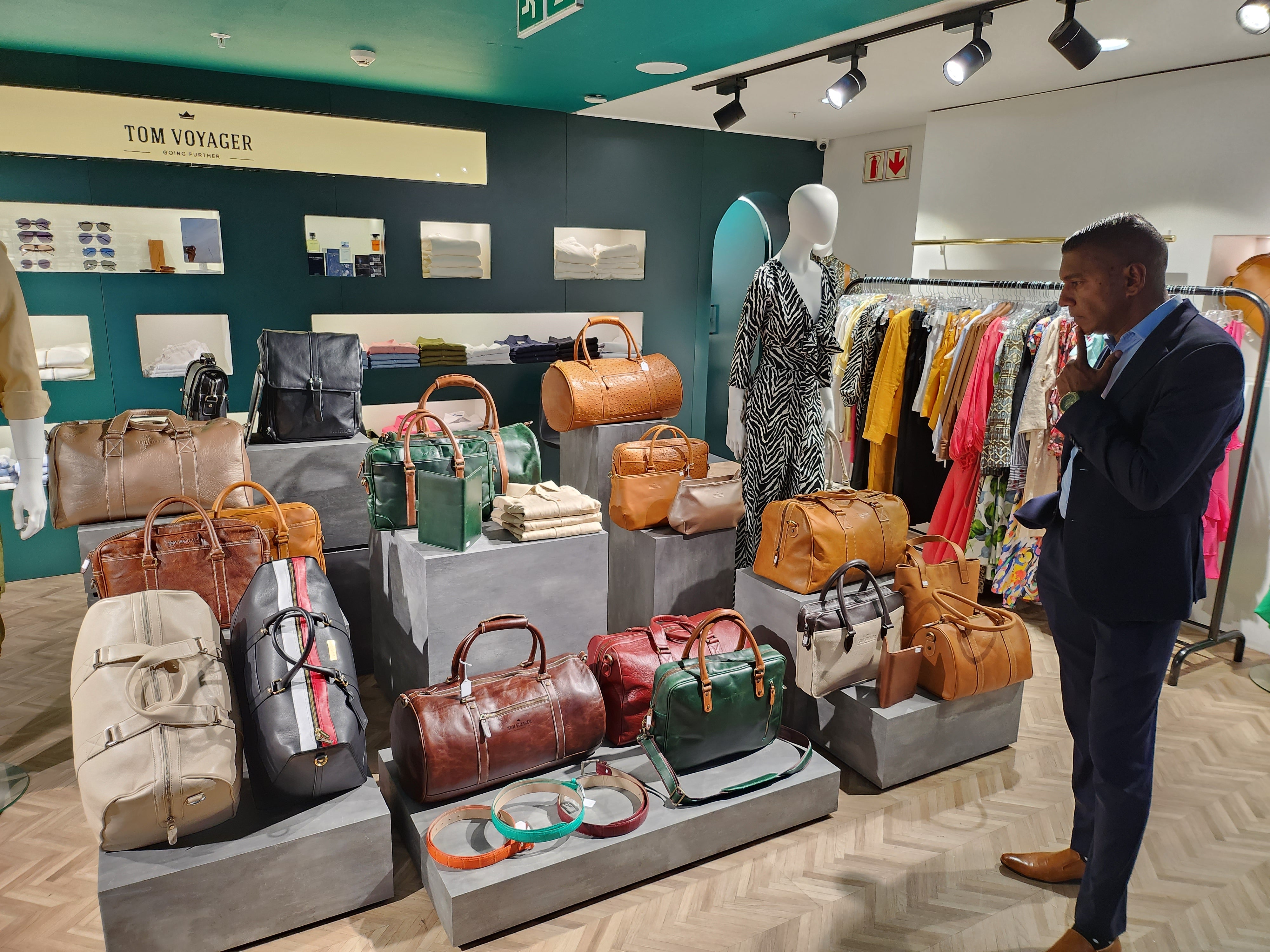
Tom Voyager VS Zara: which one is right for you?
The world of fashion is a dynamic and ever-evolving landscape, driven by the creativity and innovation of various brands. Among the plethora of fashion houses, Tom Voyager and Zara stand out as two prominent players, each with its unique approach to design, production, and retail. In this in-depth article, we will explore the distinctive features of Tom Voyager and Zara, shedding light on their histories, design philosophies, production methods, and retail strategies.
-
Brand Origins and History:
- Tom Voyager: Tom Voyager emerged on the fashion scene in 2020, founded by Carine Muakasa. The brand's inception was marked by a commitment to quality craftmanship, unique designs and top fabrics, which has since shaped its identity and design philosophy.
- Zara: Zara, on the other hand, has a rich history dating back to its establishment in 1975 Founded by Armancio Ortega, Zara quickly became synonymous with fast fashion and a unique business model that disrupted traditional industry norms.
-
Design Philosophy:
- Tom Voyager: Tom Voyager is renowned for its linen collection often characterized by special attention to comfort and fashion trends. The brand places a strong emphasis on consumer product quality resulting in collections adapts to customers’ demands.
- Zara: Zara's design philosophy revolves around fast fashion. The brand is celebrated for its ability to swiftly translate runway trends into accessible, ready-to-wear pieces. Zara's design process is characterized by reactivity, allowing it to stay at the forefront of fast-paced fashion trends.
-
Production Methods:
- Tom Voyager: Tom Voyager takes pride in its production facility, which prioritize sustainability, craftsmanship, and mostly the quality of fabrics.
- Zara: Zara is synonymous with fast fashion, and its production methods are geared towards rapid turnover.
-
Materials and Sustainability:
- Tom Voyager: Sustainability is a cornerstone of Tom Voyager's ethos. The brand is committed to using linen and silk, and its production practices often involve recycling to minimize environmental impact.
- Zara: Zara, while known for its fast fashion model, has taken steps towards sustainability.
-
Retail Strategy:
- Tom Voyager: Tom Voyager's retail strategy revolves around own retail locations in major shopping malls, providing customers with a personal attention, The brand may be characterized by Hyde Park Corner or Morningside Center emphasizing exclusivity and a connection to its brand story.
- Zara: Zara's retail strategy is deeply intertwined with its fast fashion model. The brand has a vast network of stores globally. Zara's retail success is attributed to its ability to quickly adapt to changing trends and offer affordable, on-trend fashion.
-
Price Points and Accessibility:
- Tom Voyager: Positioned in the middle market segment, Tom Voyager's pricing reflects its commitment to a particular quality/price ratio. The brand may be considered luxurious but caters to a discerning consumer base.
- Zara: Zara is known for its affordability and accessibility. The brand's pricing strategy aligns with its fast fashion model, making on-trend pieces accessible to a broad demographic.
Conclusion:
In the realm of fashion, Tom Voyager and Zara emerge as distinctive players with unique identities, design philosophies, and business models. While Tom Voyager emphasizes quality fabrics, craftsmanship and sustainability, Zara is synonymous with fast fashion and rapid trend turnover. Understanding the differences between these two fashion giants allows consumers to make informed choices that align with their values and preferences in the ever-evolving world of fashion.



